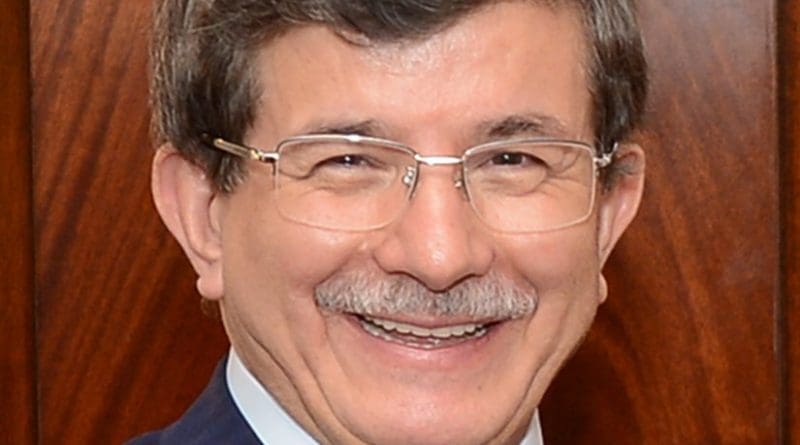EU And Turkey Reach €3 Billion Refugee Deal
By EurActiv
By Georgi Gotev
(EurActiv) — The leaders of the 28 EU member states, and Turkish Prime Minister Ahmed Davutoğlu, agreed on Sunday (29 November) on a deal to stem the flow of refugees to Europe, coupled with an unfreezing of accession negotiations, and an initial €3 billion assistance package.
Confronted by an unprecedented flow of asylum seekers, EU leaders gathered in Brussels for a sixth meeting on migration, this time in the unprecedented format of an EU-Turkey summit.
Turkey has been a candidate for EU membership since 1999, and has been negotiating for accession since 2005.
But unlike previous summits, which went past midnight, this meeting ended at 8 PM, in order to give leaders time to leave the Belgian capital. The terrorist threat level was lowered to 3 on Thursday, but Belgian security services advised EU leaders not to spend the night in Brussels.
As the host of the meeting, Council President Donald Tusk said that approximately 1.5 million people have illegally entered the EU in 2015, and most have come through Turkey.
Turkey was represented by Ahmet Davutoğlu, who was recently reappointed as Prime Minister. Davutoğlu will make a speech in the Turkish Parliament tomorrow, seeking a vote of confidence in his new government.
Between President Recep Tayyip Erdoğan, and, Prime Minister Davutoğlu, EU diplomats prefer the latter, as he is perceived as more predictable and less confrontational.
One of the few unknowns at the summit was if Turkey would accept the offer of €3 billion, or ask for more. The EU’s initial proposal was for €3 billion over two years, whereas Ankara is reported to have has sought €3.5 billion per year.
The statement which seals the deal reads: “The EU is committed to provide an initial 3 billion euro of additional resources. The need for and nature of this funding will be reviewed in the light of the developing situation.”
It is unclear where this money would come from. The initial proposal is that the Commission provides €0.5 billion, and the member states the remaining €2.5, according to the usual distribution key based on national GNI.
But sources told EurActiv that many member states were asking the Commission to provide the bulk of the amount. Some, however, expressed concerns that this money would be taken from cohesion funds, or other programs of which they are beneficiaries.
Diplomats told EurActiv that the Commission would need to sort out this issue at a later stage, and that it had been inappropriate to discuss such details in the presence of the Turkish premier.
In addition, the EU agreed to put in place a high-level dialogue with Turkey, with two annual summits, and regular high-level meetings on foreign and security policy, and on thematic issues such as energy.
The EU gave a perspective for Turks to be able to travel visa-free to the Union’s borderless Schengen area starting in October 2016, provided that in the meantime, Ankara fulfills the necessary requirements and starts implementing in full the EU-Turkey readmission agreement, beginning in June of next year.
On 14 December, the EU and Turkey will open Chapter 17 of the country’s accession negotiations (Economic & Monetary Policy). In addition, the Commission is tasked with preparing proposals for opening more chapters.
EU sources told EurActiv that those are Chapter 23 (Judiciary & Fundamental Rights), 24 (Justice, Freedom & Security), Chapter 30 (External Relations), Chapter 15 (Energy) and Chapter 26 (Education and Culture).
Good perspectives for Cyprus reunification
Cyprus has blocked several negotiation chapters due to the occupation of its north, by Turkey. However, President Nikos Anastasias hasn’t apparently cast a veto. In his remarks to the press, Davutoğlu said he expected a solution to the Cyprus problem in the coming months.
But as Tusk said, migration was the primary reason why leaders met today.
“Let me state clearly that we do not expect anyone to guard our borders for us. That can and should only be done by Europeans,” Tusk stated, adding that on the other side, the EU expected “a major step towards changing the rules of the game when it comes to stemming the migration flow that is coming to the EU via Turkey”.
It remains however absolutely unclear how Turkey would be able to discourage would-be refugees from coming to Europe. It is presumed that part of the EU funds would be destined to creating jobs for displaced Syrians living in Turkey. But, as experience has shown, refugees say they want to go to Germany, and are not tempted by EU countries with much higher GDPs than Turkey.
Asked the question how he would guarantee that the flow of refugees to Europe via Turkey will diminish, Davutoğlu said that when the joint plan is implemented, there would be much more regular migration rather than irregular migration.
Tusk said that a working group will monitor developments, but added that this was not a “simple trade – money for refugees”.
“It’s impossible, it’s immoral. I hope you know what I mean,” he stated.

